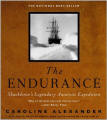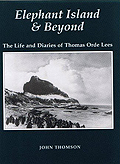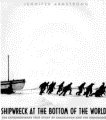Huberht (Hubert) Taylor Hudson (1886 - 1942)
-
Biographical notes
Navigating officer
Endurance
1914-17 - 28 at the start of the expedition
The Endurance Expedition

Huberht Taylor Hudson (the spelling used of the first name is the old Anglo-Saxon way, rather than the more common Hubert)
A son of a London minister and second eldest of seven children, born in Holloway. Joined the merchant service in1901 and commissioned to the Royal Naval Reserve in 1913, a mate in the Royal Navy when he signed on with Shackleton's expedition.
Hudson was regarded as something of a dull character, he earned himself the nickname "Buddha" following an event when moored at South Georgia. The crew had convinced him that he had been invited to a "costume party" (a rather grand fancy-dress event) on shore given by the whaling station manager. They encouraged him to dress as Buddha, removing most his clothing and replacing it with a bedsheet and tea-pot lid tied onto the top of his head with ribbons. He was rowed ashore through blowing snow and sleet to find that while there was a party underway (of a very un-grand nature), that he was the only one wearing any kind of fancy dress costume.
The expedition's best penguin-catcher a skill of great value during the time that the crew drifted on the pack-ice of the Weddell Sea and while awaiting rescue on Elephant Island. Hudson took charge of the lifeboat Stancomb Wills on the journey to Elephant Island though had an uncomfortable journey. While on Elephant Island, he spent most of his time in the hut with Blackborow suffering from a nervous breakdown and a badly infected abscess on the buttock. An attempt to drain this by McIlroy and Macklin yielded more than two pints of foul smelling fluid.
Biography
After the expedition, Hudson served on "mystery ships" (also known as Q boats) during the First World War. Afterwards he joined the British India Navigation Society. Despite health problems, he served as a Commodore in the Royal Naval Reserve working mainly on convoy duty. He was killed in action on the 15th of June 1942 at age 55 on HMS Eaglet when the ship was torpedoed and sank.
References to Hubert Hudson by Orde-Lees in "Elephant Island and Beyond" buy USA buy UK
-
Captain Worsley in the Dudley Docker, too stuck to his post gallantly hour by hour, steering his boat skillfully to safety, sitting up in the stern wet through to the skin. Lt. Hudson and Crean, who steered the Stancomb Wills alternately, are likewise deserving of the highest praise.
-
In view of our impending release, Hudson, our navigator is already beginning to get his house into order. He is quite a character; one never quite knows whether he is on the brink of a nervous breakdown or bubbling over with suppressed intellectuality. He is extraordinarily good-hearted and unselfish but simply cannot help making a noise. He will argue indefinitely in the most illogical manner and long after a discussion has ceased, he will spontaneously allude to it just as if it had been going on all the time. He is tall and proportionately strong, 28 years old.
The son of an Essex clergyman, he went to se at an early age and is a "mate" in the merchant service, but is at present studying hard for the rank of "master" as they call it and "should do well", as the schoolmasters say in their reports. For a good many years he has been in the Trinity Service and has done a good deal of time in the navy as lieutenant R.N.R., having left HMS Queen Mary to come to this ship as navigating officer.
The only time I have seen Hudson "put out" was when I surreptitiously annexed a pair of ink-stained white trousers of his and exchanged them with the cook for a pair of strong cloth ones now in wear on my lower half. Hudson discovered them on the cook and the fat was in the fire. Hudson goes by the name of Budda on account of his once dressing as that deity.
References to Hubert Hudson in Shackleton's book "South!" buy USA buy UK
-
At midnight, as I was sitting in the tub' I heard a clamorous noise down on the deck, with ringing of bells, and realized that it was the New Year." Worsley came down from his lofty seat and met Wild, Hudson, and myself on the bridge, where we shook hands and wished one another a happy and successful New Year. Since entering the pack on December 11 we had come 480 miles, through loose and close pack-ice. We had pushed and fought the little ship through, and she had stood the test well, though the propeller had received some shrewd blows against hard ice and the vessel had been driven against the floe until she had fairly mounted up on it and slid back rolling heavily from side to side. The rolling had been more frequently caused by the operation of cracking through thickish young ice, where the crack had taken a sinuous course.
-
Wild shot a young Ross seal on the floe, and we maneuvered the ship alongside. Hudson jumped down, bent a line on to the seal, and the pair of them were hauled up. The seal was 4 ft. 9 in. long and weighed about ninety pounds. He was a young male and proved very good eating, but when dressed and minus the blubber made little more than a square meal for our twenty-eight men, with a few scraps for our breakfast and tea.
-
James and Hudson rigged the wireless in the hope of hearing the monthly message from the Falkland Islands. This message would be due about 3.20 a.m. on the following morning, but James was doubtful about hearing anything with our small apparatus at a distance of 1630 miles from the dispatching station. We heard nothing, as a matter of fact, and later efforts were similarly unsuccessful. The conditions would have been difficult even for a station of high power.
-
The wireless apparatus was still rigged, but we listened in vain for the Saturday-night time signals from New Year Island, ordered for our benefit by the Argentine Government. On Sunday the 28th, Hudson waited at 2 a.m. for the Port Stanley monthly signals, but could hear nothing. Evidently the distances were too great for our small plant.
-
A strong south-westerly wind was blowing on October 20 and the pack was working. The Endurance was imprisoned securely in the pool, but our chance might come at any time. Watches were set so as to be ready for working ship. Wild and Hudson, Greenstreet and Cheetham, Worsley and Crean, took the deck watches, and the Chief Engineer and Second Engineer kept watch and watch with three of the A.B.'s for stokers.
-
The pioneer sledge party, consisting of Wordie, Hussey, Hudson, and myself, carrying picks and shovels, started to break a road through the pressure-ridges for the sledges carrying the boats. The boats, with their gear and the sledges beneath them, weighed each more than a ton. The cutter was smaller than the whaler, but weighed more and was a much more strongly built boat.
-
I had decided to take the James Caird myself, with Wild and eleven men. This was the largest of our boats, and in addition to her human complement she carried the major portion of the stores. Worsley had charge of the Dudley Docker with nine men, and Hudson and Crean were the senior men on the Stancomb Wills.
-
The first consideration, which was even more important than that of food, was to provide shelter. The semi-starvation during the drift on the ice-floe, added to the exposure in the boats, and the inclemencies of the weather encountered after our landing on Elephant Island, had left its mark on a good many of them. Rickenson, who bore up gamely to the last, collapsed from heart-failure. Blackborow and Hudson could not move. All were frost-bitten in varying degrees and their clothes, which had been worn continuously for six months, were much the worse for wear. The blizzard which sprang up the day that we landed at Cape Wild lasted for a fortnight, often blowing at the rate of seventy to ninety miles an hour, and occasionally reaching even higher figures. The tents which had lasted so well and endured so much were torn to ribbons, with the exception of the square tent occupied by Hurley, James, and Hudson. Sleeping-bags and clothes were wringing wet, and the physical discomforts were tending to produce acute mental depression. The two remaining boats had been turned upside down with one gunwale resting on the snow, and the other raised about two feet on rocks and cases, and under these the sailors and some of the scientists, with the two invalids, Rickenson and Blackborow, found head-cover at least. Shelter from the weather and warmth to dry their clothes was imperative, so Wild hastened the excavation of the ice-cave in the slope which had been started before I left.
-
Again, later on, one writes: "Now that Wild's window allows a shaft of light to enter our hut, one can begin to see things inside. Previously one relied upon one's sense of touch, assisted by the remarks from those whose faces were inadvertently trodden on, to guide one to the door. Looking down in the semi-darkness to the far end, one observes two very small smoky flares that dimly illuminate a row of five, endeavouring to make time pass by reading or argument. These are Macklin, Kerr, Wordie, Hudson, and Blackborow Âthe last two being invalids.
-
The main or hand pump was frozen up and could not be used at once. After it had been knocked out Worsley, Greenstreet, and Hudson went down in the bunkers and cleared the ice from the bilges. "This is not a pleasant job," wrote Worsley. "We have to dig a hole down through the coal while the beams and timbers groan and crack all around us like pistol-shots. The darkness is almost complete, and we mess about in the wet with half-frozen hands and try to keep the coal from slipping back into the bilges. The men on deck pour buckets of boiling water from the galley down the pipe as we prod and hammer from below, and at last we get the pump clear, cover up the bilges to keep the coal out, and rush on deck, very thankful to find ourselves safe again in the open air."
-
Hudson, who developed bronchitis and hip disease, was practically well again when the party was rescued. All trace of the severe frost-bites suffered in the boat journey had disappeared, though traces of recent superficial ones remained on some. All were naturally weak when rescued, owing to having been on such scanty rations for so long, but all were alive and very cheerful, thanks to Frank Wild.
-
We had two pole-tents and three hoop-tents. I took charge of the small pole-tent, No. 1, with Hudson, Hurley, and James as companions; Wild had the small hoop-tent, No. 2, with Wordie, McNeish, and McIlroy. These hoop-tents are very easily shifted and set up. The eight forward hands had the large hoop-tent, No. 3; Crean had charge of No. 4 hoop-tent with Hussey, Marston, and Cheetham; and Worsley had the other pole-tent, No. 5, with Greenstreet, Lees, Clark, Kerr, Rickenson, Macklin, and Blackborow, the last named being the youngest of the forward hands.
-
Rickenson and Worsley started back for Dump Camp at 7 a.m. to get some wood and blubber for the fire, and an hour later we had hoosh, with one biscuit each. At 10 a.m. Hurley and Hudson left for the old camp in order to bring some additional dog-pemmican, since there were no seals to be found near us. Then, as the weather cleared, Worsley and I made a prospect to the west and tried to find a practicable road. A large floe offered a fairly good road for at least another mile to the north-west, and we went back prepared for another move. The weather cleared a little, and after lunch we struck camp. I took Rickenson, Kerr, Wordie, and Hudson as a breakdown gang to pioneer a path among the pressure-ridges.
Other Crew of the Endurance Expedition
Bakewell,
William - Able Seaman
Blackborow,
Percy - Stowaway (later steward)
Cheetham,
Alfred - Third Officer
Clark, Robert S.
- Biologist
Crean, Thomas
- Second Officer
Green, Charles J.
- Cook
Greenstreet,
Lionel - First Officer
Holness, Ernest
- Fireman/stoker
How, Walter E.
- Able Seaman
Hudson, Hubert T.
- Navigator
Hurley, James Francis
(Frank) - Official Photographer
Hussey,
Leonard D. A. - Meteorologist
James,
Reginald W. - Physicist
Kerr, A. J.
- Second Engineer
Macklin,
Dr. Alexander H. - Surgeon
Marston, George
E. - Official Artist
McCarthy, Timothy
- Able Seaman
McIlroy, Dr. James
A. - Surgeon
McLeod, Thomas
- Able Seaman
McNish, Henry
- Carpenter
Orde-Lees, Thomas
- Motor Expert and Storekeeper
Rickinson, Lewis
- First Engineer
Shackleton,
Ernest H. - Expedition Leader
Stephenson,
William - Fireman/stoker
Vincent, John
- Able Seaman
Wild, Frank
- Second in Command
Wordie, James M.
- Geologist
Worsley, Frank
- Captain
Biographical information
- I am concentrating on the Polar experiences of the men involved.
Any further information or pictures visitors may have will be gratefully received.
Please email
- Paul Ward, webmaster.
What are the chances that my ancestor was an unsung part of the Heroic Age
of Antarctic Exploration?
Ernest Shackleton Books and Video

South - Ernest Shackleton and the Endurance Expedition (1919)
original footage - Video

Shackleton
dramatization
Kenneth Branagh (2002) - Video

Shackleton's Antarctic Adventure (2001)
IMAX dramatization - Video

The Endurance - Shackleton's Legendary Expedition (2000)
PBS NOVA, dramatization with original footage - Video
Endurance : Shackleton's Incredible Voyage
Alfred Lansing (Preface) - Book
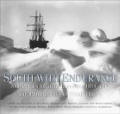
South with Endurance: Frank Hurley - official photographer
Book
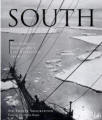
South! Ernest Shackleton Shackleton's own words
Book

Shackleton's Way: Leadership Lessons from the Great Antarctic Explorer
Book




